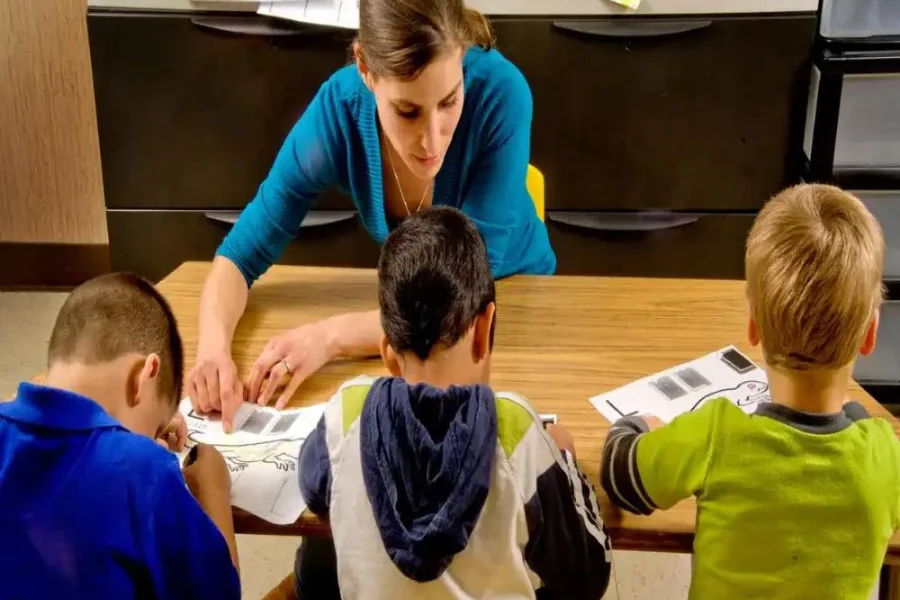
Source: fulloflifekc
What are Different Types of Disabilities in Education?
Disabilities in education can pose significant challenges for both teachers and parents. Special Education Needs (SEN) Courses offer crucial insights into supporting children with diverse needs, while Learning Disabilities (LD) courses are scarce, with very few institutes providing specialized training. Vidhyanidhi Education Society (Govt. Regd.) is one of the premier institutions offering both SEN and LD courses.
The LD syllabus covers vital topics such as understanding children with special needs, characteristics, symptoms, and types of learning disabilities, assessment and interventions, and inclusive education. These courses is for educators and parents looking to develop their skills in managing disabilities in education. The career scope includes roles like Special Needs/Remedial Tutor, Shadow Teacher, and Special Education Caregiver, providing valuable opportunities to make a change in the lives of kid with disabilities in education.
For more details of Learning Disability Course, Call / Whatsapp on +9321024137 / 9869866277
To Download Brochure of Learning Disability, Click here!
What is Special Education and Learning Disabilities?
Special Education and Learning Disabilities are now being recognized as a significant aspect of educational scenario in current times. With the growing awareness of Special Education School heads pay detailed attention in recruiting skilled special educators who can help uplift the learning outcomes of all children irrespective of their differences.
Addressing the learning and emotional needs of children providing them with the desired support they are looking for is what Special Education means. Learning disabilities refer to the various learning conditions that occur due to some neural issues hampering a child’s basic learning skills in varied areas of education. Special Education consists of includes customized teaching strategies, special classroom settings, and additional resources to ensure every kid can achieve their full potential.
Children who receive special education services often have conditions such as:
- Autism Spectrum Disorder (ASD)
- Intellectual disabilities
- Emotional and behavioral disorders
- Physical disabilities
- Sensory difficulties
Learning disabilities are some of the biggest hindrances for raising the quality of the academic progress. Special Education address these learning disabilities in the most scientific manner that tackles the challenges faced by children who possess these learning disabilities.
These include:
- Dyslexia (reading difficulties)
- Dysgraphia (writing difficulties)
- Dyscalculia (math difficulties)
- Auditory Processing Disorder
- Nonverbal Learning Disabilities
To be able to cater to the varied learning needs of all children in a normal classroom requires a multi-dimensional approach that includes multiple approaches of differentiated instruction, adapting the syllabus as per the preferences of the children, devising Specialised Educational plans student wise.
The prime motto of Special Education is to train educators to create a conducive learning atmosphere where each child is valued regardless of their learning patterns, behavioral issues giving them a chance to grow and thrive successfully.
Every child deserves a fair chance to receive quality education and giving him that fair chance is what Special Education aims at.
Join Vidhyanidhi’s Learning Disability Course and transform education for every child!
For more details of Learning Disability Course, Call / Whatsapp on +9321024137 / 9869866277
To Download Brochure of Learning Disability, Click here!
Types of Disabilities in Education
FAQ
What is the biggest problem for most students with learning disabilities?
The biggest problem for most students with learning disabilities is not getting the ideal educational support that helps them to learn and study effectively.
What is the most common learning disability in schools?
Dyslexia is the most common learning disability in schools. Vidhyanidhi Education Society offers specialized courses to help educators support students with dyslexia.
What are the problems faced by disabled persons in education?
Disabled persons in education face problems such as lack of accessible resources, inadequate support, social stigma, and insufficiently trained teachers.



